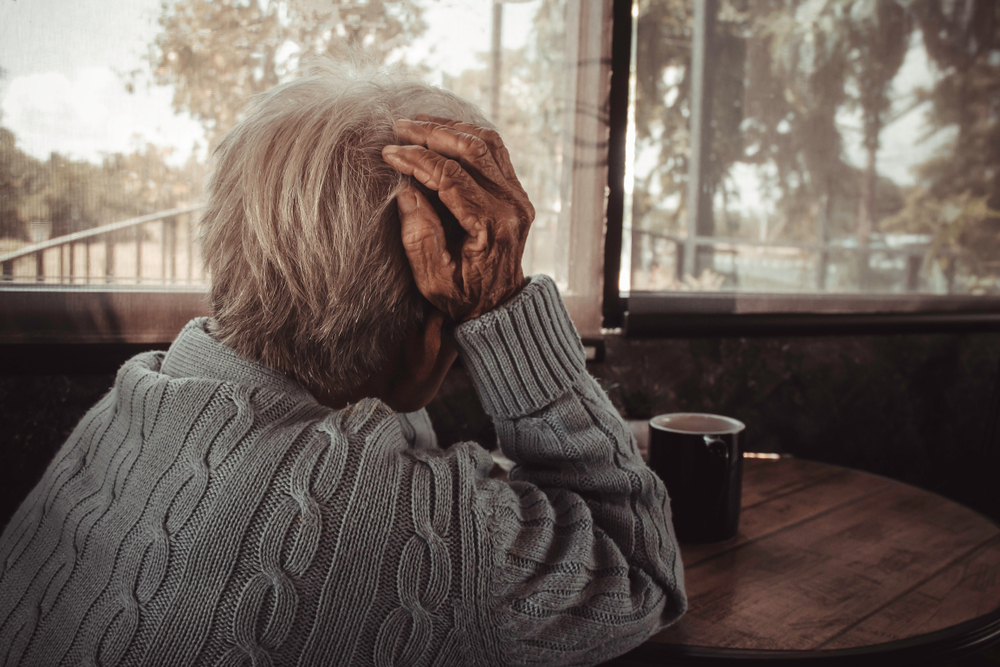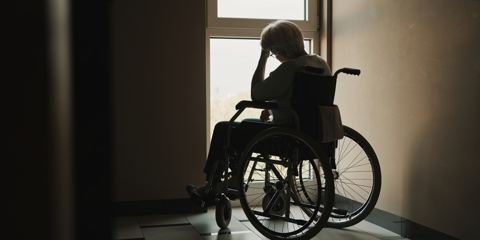When it comes to elder abuse, the reality is that it can happen anywhere. While nursing home staff members often commit abuse, statistics show that family members are more likely to abuse their elderly loved ones. In fact, statistics show that family members commit elder abuse in nearly 60% of cases.
However, far more attention has been given to abuse in the nursing home setting than to abuse caused by caregivers in the home care setting. Nobody wants to think that a family member could ever harm their elderly loved one, but it happens often.
This abuse is often due to a lack of oversight and monitoring. Home care has fewer regulations and much less supervision than a nursing home. Home care can lack proper oversight, making it easier for abuse to go unnoticed.
In some cases, family members are the primary caregivers. While most family caregivers provide loving care, there are instances where abuse can occur. Abuse may occur due to caregiver stress. Caregivers need time alone, especially when they are caring for disabled people or those suffering from Alzheimer’s disease or other forms of dementia.
The lack of external monitoring can make it more challenging to identify signs of abuse. Plus, the absence of regular professional caregivers and healthcare providers visiting the home makes it easier for abusive people to exert control over the older adult without detection.
This is a serious situation. Elder abuse can affect a victim in many ways. Their physical and emotional health can be greatly affected. In addition, abuse victims tend to die earlier than those who have not been abused.
Because of this, recognizing elder abuse is important. Identifying signs of abuse allows for prompt intervention so that the older adult can stay safe. Also, by recognizing elder abuse, perpetrators can be held accountable for the harm they have caused.
To recognize elder abuse, it is important to become familiar with the warning signs and indicators associated with each type of abuse. Here are the types of elder abuse as well as the common signs.
Types of Elder Abuse
Elder abuse can happen in several ways. Here are common forms:
Physical abuse. This involves the use of physical force that may result in bodily injury, physical pain, or impairment. Examples include hitting, slapping, pushing, or using physical restraints improperly.
Emotional or psychological abuse. This involves causing emotional pain, distress, or anguish through verbal or nonverbal acts. Examples include threats, humiliation, intimidation, isolation, or constant criticism.
Sexual abuse. This involves any non-consensual sexual contact of any kind with an elderly person. This includes unwanted touching, sexual assault, or coerced nudity.
Neglect. This refers to the failure to provide necessary care, assistance, or supervision to an elderly person. This can be active (intentional withholding of care) or passive (unintentional due to lack of knowledge or resources).
Financial abuse. This refers to the illegal or improper use of an elder’s funds, property, or assets. This can include theft, fraud, forgery, or coercion to transfer property or change wills.
Abandonment. This is the desertion of an elderly person by someone who has assumed responsibility for their care or by a person with physical custody.
Self-neglect. This is when an elderly person fails to meet their own essential needs, such as hygiene, nutrition, or medical care, often due to physical or mental impairment.
Signs of Elder Abuse
Any older person can be a victim of abuse. Some risk factors for abuse include low income, minority status, substance abuse by the patient or caregiver, any prior history of abuse, and cognitive impairment. Women are more likely to be abused and are the victims in nearly all sexual abuse cases, although men are not exempt from abuse.
Signs of physical abuse:
Unexplained bruises, welts, or scars
Broken bones, sprains, or dislocations
Reported or visible signs of being hit, slapped, or restrained
Broken eyeglasses or frames
Signs of being restrained, such as rope marks on wrists
Caregiver’s refusal to allow you to see the elder alone
Signs of emotional or psychological abuse:
Unusual behavior often attributed to dementia (such as rocking, sucking, or mumbling to oneself)
Withdrawal from normal activities
Sudden change in alertness
Unexplained depression, agitation, or other emotional disturbances
Being unusually fearful or suspicious
Reports of belittling, threats, or other forms of verbal abuse
Isolating the elderly person from friends and family members
Signs of sexual abuse:
Bruises around the breasts or genital area
Unexplained sexually transmitted diseases or infections
Unexplained vaginal or anal bleeding
Torn, stained, or bloody underwear
Reports of being sexually assaulted or raped
Signs of financial abuse:
Sudden changes in financial situations
Unexplained withdrawals from the elderly person’s accounts
Adding additional names to the elder’s bank card
Changes to the elderly person’s will, insurance policies, or titles to property
Unpaid bills or lack of medical care, despite having adequate financial resources
Financial activity the elderly person couldn’t have done, such as an ATM withdrawal when the account holder is bedridden
Unnecessary services, goods, or subscriptions
Signs of neglect:
Dehydration or malnutrition
Untreated bedsores
Poor personal hygiene
Unexplained weight loss
Not being given the necessary medications
Unsanitary living conditions (such as dirt, bugs, dirty bedding and clothes)
Being left dirty or unbathed
Unsuitable clothing for the weather
Abandonment or desertion of the elderly person at a public place
Contact Newman Law Group Today
Many people think elder abuse is most common in nursing home environments, but the truth is that most abuse happens at home. It’s sad that loved ones cannot be trusted, but unfortunately, the elderly are often taken advantage of.
Whether your loved one has suffered from physical, emotional, sexual, or financial abuse, Newman Law Group, LLP can help you understand your legal options. You need a skilled attorney in order to win adequate payment for your loved one's suffering. To schedule a consultation with our office, fill out the online form or call (916) 352-3181.





